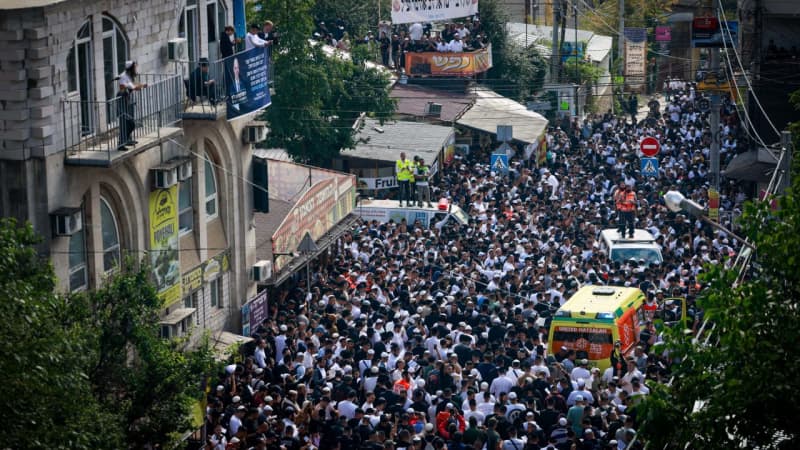The NIS 10 million deal between Israel and Moldova fell apart as 60,000 hasidim were preparing for an annual Rosh Hashanah pilgrimage.
An agreement made between Moldova and Israel to bring around 50 charter flights to Chisinau ahead of religious trips to Uman has collapsed just weeks before the holiday of Rosh Hashanah.
According to Ynet, last week Israel had decided to spend NIS 10 million on constructing a temporary hangar to serve as a terminal in Chisinau in order 60,000 Breslov hasidim to safely travel to the grave of Rabbi Nachman in Uman, Ukraine, amid the ongoing war with Russia. Chisinau is the closest destination to Uman.
Both Prime Minister Benjamin Netanyahu and Shas Chairman Arye Deri, were involved in the discussions as “budget pooling” was required from five government ministries to implement the demands, Ynet added.
A source involved in the negotiations between the two countries told Ynet that the collapse comes as a result of “excessive payment to Moldova, which is causing extortion and crises with other countries.” Moldova reportedly demanded full reimbursement of security and security expenses.
Chairman of the Breslov Union in Uman, Rabbi Natan Ben Nun, said Moldova’s requests were legitimate, but the sums were excessive: “Moldova saw the arrival of the Hasidim to Uman through their territory as a business opportunity. There is logistics on their part and a need for manpower. Their requests for payment are legitimate, but the amounts are definitely high.”

Haredi men are seen protesting the effort to draft ultra-Orthodox Israelis into the IDF. (credit: FLASH90)
Israel is now allegedly working overtime to transfer the charter flights to other countries in the region.
According to the source, 10,000 Israelis are still expected to travel to Moldova on regular, non-charter flights, and another 10,000 will pass through Moldova on an overland route from Romania to Ukraine. Other charter flights will be divided between neighboring countries: 25 to Iaşi, 24 to Tulcea, 18 to Bucharest, 17 to Rzeszów, five to Sosová, three to Bakau, and six to Constanţa.
The Secretary of State in the Romanian Ministry of Transport, Ionuț-Cristian Săvoiu, told Free Europe Moldova that it would be possible for pilgrims to pass through airports in eastern Romania, but that the number of travelers would depend on the airports concerned, and would not be up to the ministry.
Kol Chai (the Haredi outlet) corroborated reports of the collapse of Israel-Moldova discussions, and said that only 100 charter flights will fly to Uman this year, compared to 140 or more in previous years.
The matter of Uman has received significant public attention in Israel in recent weeks after Deputy Attorney-General Gil Limon argued that young ultra-Orthodox (haredi) men of enlistment age must not be allowed to go to Uman or other pilgrimage sites outside the country for Rosh Hashanah.
There have been concerns within the Breslov community that young Hasidim will be jailed and subsequently conscripted should they make the trip.
“We regret that the attorney-general found the time to prevent Breslov hasidim from fulfilling their religious obligation to come to Uman for Rosh Hashanah,” Ben-Nun said, haredi media outlet JDN reported.
He later stated, “I don’t think anyone wants this kind of confrontation. And of course, no one wants to endanger young men spending the holidays in jail cells. But through the power of our holy Rebbe, in the end, there will be a good solution for all of us.”
Memorandum of understanding
This comes amid a significant and historical step in Israeli-Moldovan bilateral relations. On September 3, Israel signed a memorandum of understanding (MoU) with a small Eastern European country, which establishes joint wheat cultivation to safeguard Israel’s food security.
As part of the MoU, Israel will contribute advanced seeds and agricultural expertise, while Moldova provides land, water, and labor.
“The diversification of Israel’s wheat sources is welcome in normal times and essential in emergencies,” said Israel’s Agriculture Minister, Avi Dichter. “This preparation ensures the functional continuity of our economy. The ‘full shelves’ principle guides all our planning—stocks that are ready in both ordinary and extreme situations.”
